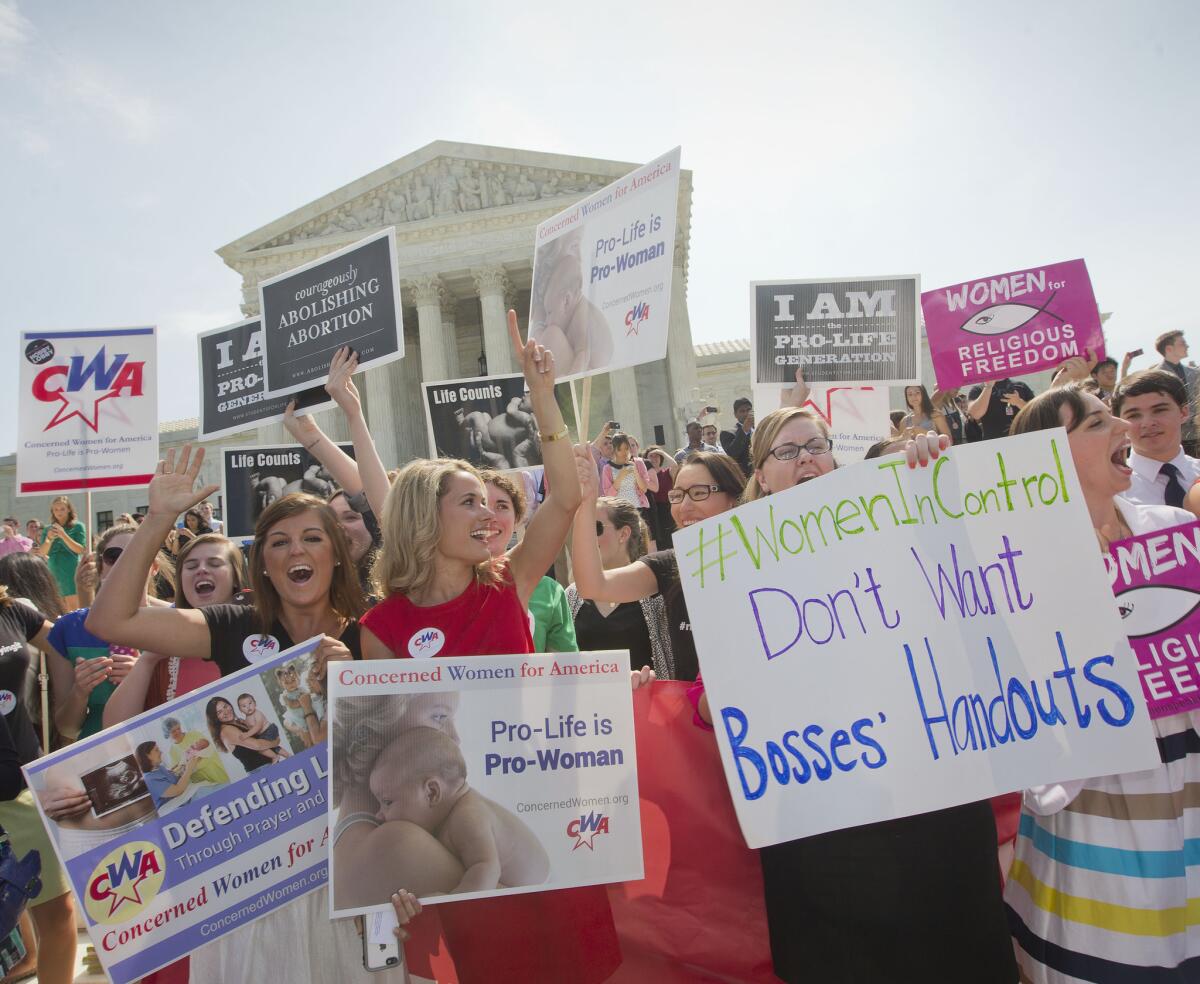Analysis: Hobby Lobby case underscores religion as seismic fault in politics

The Supreme Court‚Äôs decision to exempt some companies from covering birth control under Obamacare ‚ÄĒ and the reactions to its judgment ‚ÄĒ underscore one of the prime dividing lines in American politics: the practice of religion.
Within minutes of the decision in the Hobby Lobby case, the airwaves and the Internet virtually seized under the weight of Republicans supporting it and Democrats decrying it.
Throwing nuance out the window, both sides sought to grab full political advantage of the rulng, which allowed that closely held businesses with religious objections to some contraceptives did not have to include coverage of them in their insurance plans.
Each side was seeking an added edge going into the 2014 House and Senate elections and the 2016 presidential contest. But evidence suggests that for most voters, their practice of religion has already come to define how they vote, well before any fallout from this case.
In 2012, for example, the less frequently a voter attended religious services, the more likely he or she sided with President Obama over Republican nominee Mitt Romney.
Exit polls showed that those who attended services more than once a week gave a 27-point advantage to Romney, meaning that they were 31 points off the overall 4-point Obama victory. Of those who never went to services, 62% voted for Obama and 34% for Romney, also wildly off the overall results. For those who attended weekly, monthly or a few times a year, the president gained strength as the public demonstration of religion eased.
The vehemence of the vote differed by the type of religion, however. Protestants favored Romney no matter how often they attended church. Catholics who attended weekly or more favored Romney, but less observant Catholics backed Obama. Those of other faiths ‚ÄĒ or no faith ‚ÄĒ were overwhelmingly in Obama‚Äôs corner.
The voters who objected most fiercely to the president‚Äôs re-election were whites who described themselves as ‚Äúborn-again‚ÄĚ Christians. Only 21% of them sided with Obama, while 78% sided with Romney; among voters who said they were not born-again Christians, Obama got 60% of the vote versus 37% for Romney.
Much was made during the 2012 campaign about whether Romney‚Äôs Mormon faith ‚ÄĒ he has had a high-ranking role in the church ‚ÄĒ would affect support for him. It appeared to have no impact whatsoever ‚ÄĒ or at least none discernable from the support given the GOP‚Äôs 2008 nominee, Sen. John McCain of Arizona.
In every exit poll category that had to do with religion, voters came to precisely the same conclusions in 2012 and 2008, often by quite similar proportions.
Among Protestants, 57% voted for Romney, and 42% for Obama; they had backed McCain, who was not the favored candidate of the GOP’s religious wing, by 54% versus 45% for Obama. Of those of all faiths who do not attend services, 62% backed Obama versus 34% in 2012 for Romney; in 2008, 67% voted for Obama and 30% for McCain.
And Obama’s low-water mark of 21% among white born-again Christians in 2012 was statistically the same as his 24% support in 2008.
All told, in 2012, white born-again Christians comprised 26% of the electorate, but they are overwhelmingly members of the Republican party. That goes a long way toward explaining why, even now, Republicans who may seek the presidency in 2016 are emphasizing their credentials on faith: to lock in those voters whose only choice is which Republican to support, since they largely have no interest in the other side.
Twitter: @cathleendecker
More to Read
Sign up for Essential California
The most important California stories and recommendations in your inbox every morning.
You may occasionally receive promotional content from the Los Angeles Times.











